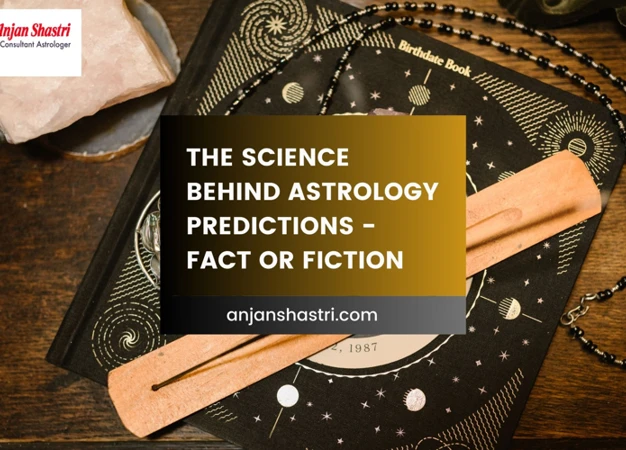The Enigma of Astrological Predictions: Unraveling the Science Behind the Stars
As human beings, we have always been fascinated by the mysteries of the universe and our place within it. One area that continues to captivate our imagination is astrology – the ancient practice of predicting and understanding human behavior based on the alignment and movement of celestial bodies. For centuries, astrologers have claimed that the positions of the planets and stars have a profound influence on our lives, shaping our personalities, relationships, and even our destinies. But is there any scientific validity to these claims? In this article, we will delve into the origins of astrological predictions, explore the scientific approach to astrology, examine the psychological factors at play, analyze case studies, discuss the role of confirmation bias, and challenge astrological predictions with a critical lens. It’s time to unlock the secrets and explore the intricate interplay between science and astrology.
The Origins of Astrological Predictions
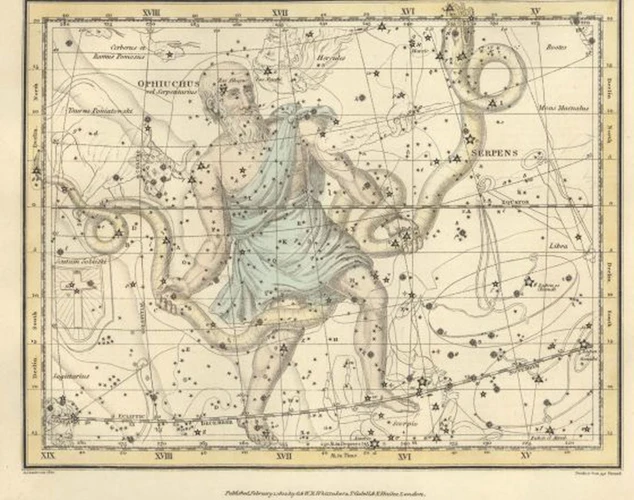
The history of astrological predictions dates back to ancient civilizations, where early societies looked to the skies for answers and guidance. These ancient astrological systems, such as those practiced by the Babylonians, Egyptians, and Greeks, laid the foundation for the astrological practices we know today. Ancient Astrological Systems were intrinsically linked to religious and spiritual beliefs, where celestial bodies were seen as divine forces influencing human affairs. The Babylonians, for example, developed an elaborate system that assigned meanings to different planetary positions and alignments. Similarly, the Egyptians associated specific deities with celestial bodies, believing that they exerted control over various aspects of life. As civilizations evolved, astrological practices spread across continents, adapting to local cultural beliefs. The Influence of Celestial Bodies played a crucial role in shaping astrological predictions. Astrologers believed that the positions and movements of the planets and stars were symbolic representations of the energies affecting individuals and the world. The Sun, Moon, and planets were associated with different qualities and characteristics, influencing everything from personality traits to future events. The alignment of these celestial bodies at the time of a person’s birth was believed to determine their astrological sign and shape their destinies. It is from these ancient roots that the practice of astrological predictions has persisted and evolved throughout the centuries. To delve deeper into the topic of astrological predictions, click here.
Ancient Astrological Systems
Ancient astrological systems were diverse and varied, each with its own unique approach to understanding the influence of celestial bodies on human affairs. One such system is Babylonian astrology, which originated in ancient Mesopotamia around the 2nd millennium BCE. The Babylonians believed that the movements of celestial bodies held great significance in predicting the fate of individuals and nations. They meticulously recorded planetary positions and their relation to major events, developing a complex system of interpretation based on these observations. Similarly, the Egyptians developed their own astrological system that intertwined celestial bodies with their religious beliefs. They associated specific deities with planets and believed that their alignments influenced human behavior and the course of events. Greek astrology, influenced by Babylonian and Egyptian practices, further expanded the understanding of astrology. Led by renowned figures such as Ptolemy, the Greeks developed a comprehensive system that categorized celestial bodies into twelve zodiac signs, each associated with specific traits and characteristics. These ancient astrological systems formed the basis for the astrological practices we still discuss and analyze today. By understanding the origins of astrology, we can gain a deeper appreciation of how it has evolved over time. To learn more about the modern interpretation of astrological predictions, you can explore our article on the science behind astrological predictions.
The Influence of Celestial Bodies
Astrology posits that celestial bodies have a profound influence on our lives, and understanding the Influence of Celestial Bodies is key to astrological predictions. Each planet, including the Sun and Moon, is associated with specific qualities and characteristics that shape our personalities and experiences. For example, the Sun is often linked to one’s core identity and ego, reflecting attributes such as leadership, confidence, and vitality. The Moon, on the other hand, is connected to emotions, intuition, and maternal instincts. The positions of these celestial bodies at the time of a person’s birth are believed to determine their astrological sign and individual traits. Astrologers examine the relationships between different planets, known as aspects, to interpret how their energies interact. For instance, a harmonious aspect between Venus and Mars might indicate passion and romance, while a challenging aspect could suggest conflicts or tension in relationships. It is through these intricate configurations and alignments that astrologers make predictions about love, career, and personal growth. Some may argue that astrological predictions even have the power to shape our future. To explore the fascinating relationship between celestial bodies and astrology’s ability to shape our lives, delve into the topic of how astrological predictions can help shape the future.
The Scientific Approach to Astrology
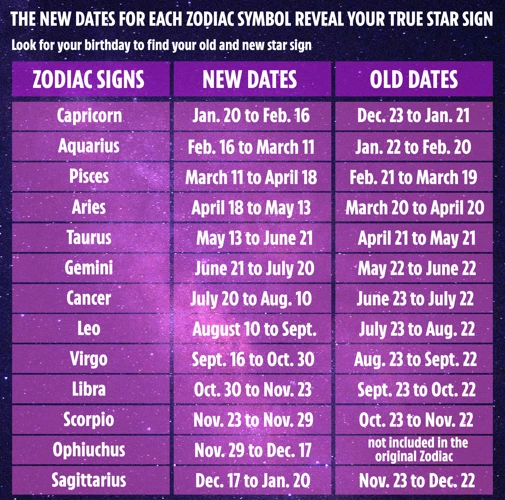
The scientific approach to astrology seeks to analyze and understand astrological predictions using rigorous methods and empirical evidence. One aspect of this approach is the Statistical Analysis of Astrological Data. Researchers have gathered data from large populations, examining correlations between astrological signs and various traits or events. Such studies have attempted to determine if there are statistical significances that support the claims made in astrological predictions. However, critics argue that many of these studies suffer from methodological flaws, making it difficult to draw definitive conclusions. Another scientific aspect is Planetary Mechanics and Tidal Forces. Scientists have explored how the gravitational forces exerted by celestial bodies, such as the Moon and the Sun, can impact Earth’s tides. While there is a physical influence on our planet, some astrologers claim that these forces also affect human behavior and events. However, the scientific consensus is that the influence of celestial bodies on human life is negligible, with such forces being immensely weaker than internal and environmental factors. Despite these scientific approaches, astrology remains a subject of debate and controversy. While it may not fit into the traditional definition of scientific inquiry, astrology continues to fascinate and intrigue many individuals. To explore more about the intersection between astrology and science, navigate to this informative article.
Statistical Analysis of Astrological Data
Statistical analysis plays a crucial role in assessing the scientific validity of astrological predictions. Researchers have conducted numerous studies to examine the correlation between astrological factors and real-life events or personality traits. Through rigorous , scientists aim to determine whether there is a significant relationship between planetary positions and human behaviors. These studies often involve collecting data from a large sample size and analyzing it using various statistical methods. For example, researchers may examine birth charts of individuals born under certain astrological signs and compare them to their personality traits or life outcomes. By using statistical techniques like regression analysis or chi-square tests, researchers can identify patterns or associations between astrological variables and the variables of interest. However, it is important to note that while some studies may find statistically significant correlations, it does not necessarily prove causation or provide concrete evidence for the accuracy of astrological predictions. The complexities involved in human behavior and the multitude of factors influencing our lives make it challenging to establish a direct link between astrological factors and outcomes. Nonetheless, statistical analysis serves as a valuable tool in exploring the scientific aspects of astrology.
Planetary Mechanics and Tidal Forces
At the heart of astrological predictions lies the study of planetary mechanics and tidal forces. Planets in our solar system, including Earth, exert gravitational forces that influence the tides of our oceans. These gravitational interactions between celestial bodies have been extensively studied and understood through the field of astronomy. The movements of planets and their gravitational pull can also have subtle effects on Earth’s atmosphere, weather patterns, and even the electromagnetic fields surrounding our planet. It is hypothesized that these intricate celestial dance and their influence extend beyond physical phenomena and can impact the behavior and emotions of living beings. However, it is important to note that the effects of planetary mechanics and tidal forces remain highly debated within the scientific community, and their direct connection to individual lives and events is yet to be conclusively established. While astrology enthusiasts argue that the positioning of planets at a given moment can shape one’s fate, skeptics point out that the gravitational forces exerted by distant planets are incredibly weak compared to local influences. As we continue to explore the scientific aspects of astrology, it is crucial to consider the limitations and complexities of planetary mechanics and tidal forces in relation to astrological predictions.
The Psychological Factors in Astrological Predictions
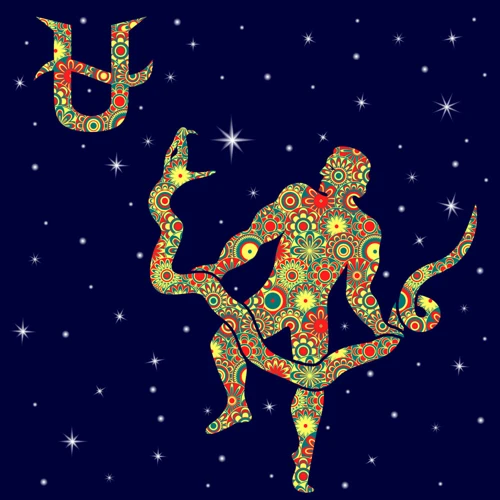
Astrological predictions are not only influenced by celestial bodies but also shaped by various psychological factors. The way individuals interpret and perceive astrological readings is heavily influenced by their personal beliefs and self-fulfilling prophecies. When people read their horoscopes or receive astrological advice, they often cherry-pick information that aligns with their desires or expectations, seeking confirmation rather than objective analysis. This phenomenon, known as the Barnum Effect, is the tendency to believe general and vague statements about oneself as highly accurate and specific. People subconsciously attribute personal meaning to these statements, finding relevance and truth even when they are applicable to a wide range of individuals. Individuals may engage in wishful thinking, hoping that the predictions will come true and influencing their behavior accordingly. They may actively seek out situations or interpret events in a way that aligns with their astrological predictions. These psychological factors play a significant role in how astrological predictions are perceived and influence the way individuals navigate their lives.
Personal Beliefs and Self-Fulfilling Prophecies
When it comes to astrological predictions, personal beliefs play a significant role in how individuals interpret and apply the insights provided. Astrology, like any other belief system, can be subject to self-fulfilling prophecies. A self-fulfilling prophecy occurs when a person’s belief in a predicted outcome influences their behavior in such a way that it ultimately leads to the fulfillment of that prediction. For example, if an astrologer predicts that a particular day will be challenging, an individual who strongly believes in astrology may approach that day with a negative mindset, making them more likely to encounter difficulties, thus confirming the prediction. This phenomenon can also apply to positive predictions, where individuals may be more confident or optimistic based on astrological forecasts, leading to a self-fulfilling positive outcome. It is important to recognize that personal beliefs play a significant role in how individuals perceive and interpret astrological predictions. These beliefs can greatly influence decision-making, behavior, and ultimately shape a person’s experiences. To further explore the impact of personal beliefs on astrology, check out our article on astrological predictions explained.
The Barnum Effect and Wishful Thinking
The Barnum Effect, also known as the Forer Effect, is a psychological phenomenon that explains why people tend to believe generalized, positive statements about themselves, even when they could apply to anyone. This phenomenon plays a significant role in astrological predictions. Astrologers often provide vague and ambiguous statements that can apply to a wide range of individuals. For example, a horoscope might state that “you have a strong desire for success but sometimes doubt your abilities.” This statement is general enough that many people can relate to it, regardless of their actual personalities or circumstances. Personal Beliefs and Self-Fulfilling Prophecies also contribute to the effectiveness of astrological predictions. When individuals read positive predictions about their future, they may subconsciously alter their behavior to align with those predictions, ultimately fulfilling them. This phenomenon is known as a self-fulfilling prophecy. For example, if an astrological prediction suggests that luck will come your way, you may be more open to opportunities, increasing your chances of experiencing positive outcomes. Additionally, make people susceptible to interpreting astrological predictions positively and selectively, ignoring any conflicting information. This bias reinforces the belief in astrology and its effectiveness. It is essential to recognize the role of psychological factors when examining the credibility of astrological predictions.
Examining Case Studies
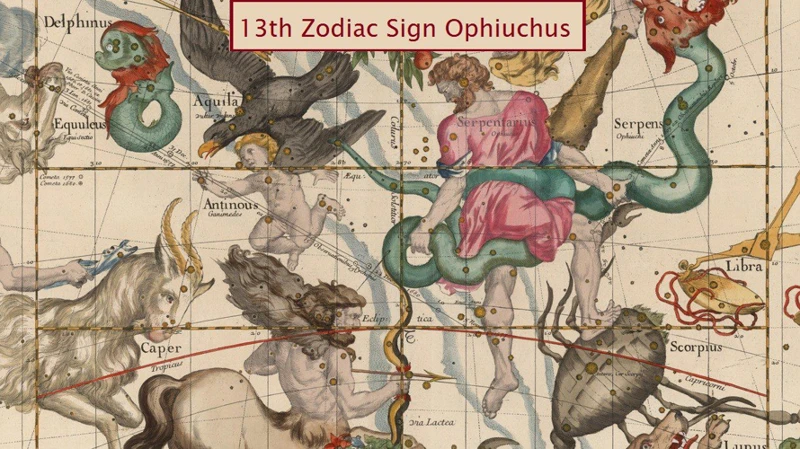
When it comes to examining the validity of astrological predictions, case studies provide valuable insights. One area of focus is The Zodiac and Personality Traits. Astrologers believe that each astrological sign is associated with specific personality traits and characteristics. For example, individuals born under the sign of Aries are said to be assertive and confident, while those born under Cancer are considered nurturing and sensitive. However, critics argue that these personality descriptions are often vague and generalized, allowing for interpretation that can apply to a wide range of individuals. Another area of exploration is Relationship Compatibility and Astrological Sign Matching. Many people turn to astrology to determine compatibility in romantic relationships. Astrologers claim that certain signs are more harmonious and compatible with each other. However, scientific studies have found no significant evidence to support these claims. In fact, research suggests that relationship success is determined by factors such as communication, shared values, and commitment, rather than astrological sign compatibility. By examining these case studies, we can critically evaluate the claims made by astrology and explore alternative explanations for the perceived accuracy of astrological predictions.
The Zodiac and Personality Traits
The Zodiac, consisting of twelve constellations, has long been associated with specific personality traits. are a fundamental aspect of astrological predictions. Each sign of the Zodiac, such as Aries, Taurus, Gemini, and so on, is believed to possess unique characteristics that influence the behavior and temperament of individuals born under that sign. For example, Aries is known for its boldness and assertiveness, while Taurus is often described as dependable and practical. These personality traits are thought to be derived from the qualities associated with the ruling planet of each sign. The position of the Sun during an individual’s birth determines their Zodiac sign, thereby influencing their personality traits and providing insight into their strengths, weaknesses, and preferences. However, it’s important to note that interpretations of personality traits attributed to Zodiac signs can vary among astrologers and cultural traditions. It is this intricate interplay between the Zodiac and personality traits that forms the basis for astrological predictions regarding individual behavior and characteristics.
Relationship Compatibility and Astrological Sign Matching
Astrology has long been used as a tool for assessing relationship compatibility through the practice of astrological sign matching. This concept suggests that individuals are more compatible with certain zodiac signs based on the elements (fire, earth, air, and water) and qualities (cardinal, fixed, and mutable) associated with their astrological sign. For instance, fire signs (Aries, Leo, Sagittarius) are generally believed to be compatible with other fire signs due to their shared energy and passion. On the other hand, earth signs (Taurus, Virgo, Capricorn) are often seen as compatible with other earth signs due to their practical and grounded nature. This method of assessing compatibility is further enhanced by considering other factors such as planetary alignments and aspects. However, it is important to note that astrological sign matching is not a definitive predictor of relationship success. Relationships are complex and multifaceted, influenced by a myriad of factors beyond astrology. While astrology may provide some insights and compatibility guidelines, true happiness and compatibility in relationships require effort, communication, and understanding. It is advisable to use astrology as a tool for self-reflection and understanding rather than solely relying on it to dictate relationship choices.
The Role of Confirmation Bias
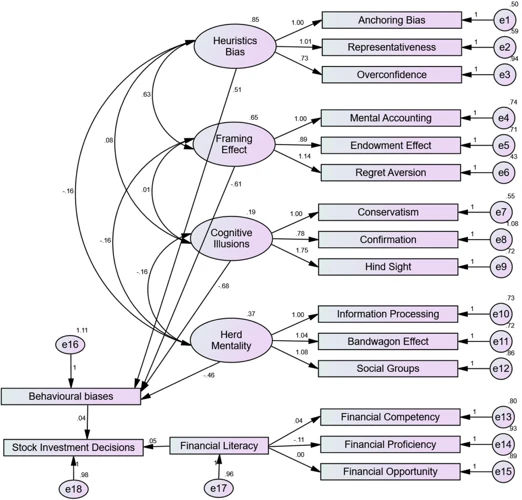
Confirmation bias plays a significant role in the interpretation and acceptance of astrological predictions. Confirmation Bias, which is a cognitive bias, refers to the tendency of individuals to seek and interpret information in a way that confirms their pre-existing beliefs or hypotheses. When it comes to astrology, individuals may seek out horoscopes or astrological readings that validate their own traits, behaviors, or experiences, while dismissing or downplaying any information that contradicts their beliefs. This bias can be particularly strong when it comes to personal matters, such as relationships or career choices, where individuals are more likely to selectively focus on information that aligns with their desires or expectations. How Confirmation Bias Influences Interpretation of astrological predictions can be seen in the subjective nature of astrology itself. Astrological readings are often general and vague, allowing individuals to interpret them in ways that fit their own experiences. For example, a horoscope may state that a person may encounter challenges in their relationships, but this can be interpreted in various ways depending on the current circumstances of the individual. If someone is going through a difficult period, they may attribute any relationship issues to the astrological prediction, reinforcing their belief in astrology. Conversely, if someone is in a happy and stable relationship, they may dismiss the same prediction as irrelevant or inaccurate. To further explore how confirmation bias can influence astrological readings, click here.
How Confirmation Bias Influences Interpretation
Confirmation bias is a cognitive bias that affects how we interpret information and seek out evidence that confirms our existing beliefs or expectations. In the context of astrology, confirmation bias plays a significant role in how astrologers and individuals interpret astrological predictions. When receiving a horoscope reading or astrological interpretation, individuals are more likely to focus on and remember information that aligns with their preconceived notions or desires. This bias can lead to a distorted perception of accuracy and reinforce the belief in the validity of astrology. Astrologers themselves may unintentionally fall victim to confirmation bias, interpreting astrological data in a way that confirms their own beliefs and biases. They may selectively emphasize aspects that align with their predictions while downplaying or ignoring contradictory information. This bias can create a self-perpetuating cycle where both astrologers and individuals reinforce their beliefs and interpretations, further solidifying the notion that astrology is accurate and reliable. To learn more about confirmation bias in astrological readings, click here.
Confirmation Bias in Astrological Readings
Confirmation bias refers to the tendency to interpret information in a way that confirms one’s preexisting beliefs or expectations. When it comes to astrological readings, confirmation bias plays a significant role in shaping and influencing our interpretations. Once we have a belief or expectation about ourselves based on our astrological sign or predictions, we tend to actively seek out information that confirms our beliefs and disregard or downplay anything that contradicts them. This bias can lead to an inaccurate and skewed understanding of astrological predictions. For example, if an astrologer predicts that a certain day will bring good fortune and success for someone with a particular astrological sign, that individual may only focus on the positive aspects of their day and dismiss any negative experiences. This reinforces their belief in astrology and confirms their initial expectations. It’s important to recognize the presence of confirmation bias in astrological readings and approach them with a critical mindset. By being aware of this cognitive bias, we can strive for a more objective evaluation of the accuracy and validity of astrological predictions.
Challenging Astrological Predictions with Science
Astrological predictions have been met with skepticism and criticism from the scientific community, who argue that the claims made by astrologers lack scientific evidence and are based on subjective interpretations. When we examine astrological predictions through a scientific lens, several alternative explanations emerge that challenge the validity of astrology. Exploring Alternative Explanations, such as the Barnum effect, suggests that individuals tend to believe generic and vague personality descriptions as accurate representations of themselves. This psychological phenomenon leads people to project and interpret astrological predictions in a way that aligns with their own beliefs and experiences. Additionally, Debunking Astrological Fallacies reveals that the accuracy of astrological predictions often rests on cognitive biases, such as confirmation bias, selective memory, and post hoc reasoning. Astrologers often emphasize the instances where predictions align with events but overlook the numerous inconsistencies and failures. Scientific studies have consistently failed to find any conclusive evidence supporting the accuracy of astrological predictions. As we critically analyze and challenge astrological predictions with scientific principles, it becomes evident that they are more likely a result of coincidence, subjective interpretation, and psychological factors rather than supernatural influences.
Exploring Alternative Explanations
When it comes to exploring astrological predictions, it is important to consider alternative explanations from a scientific perspective. While astrologers attribute the influence of celestial bodies on human behavior, skeptics offer different viewpoints that challenge these claims. One alternative explanation revolves around the concept of psychological factors. Psychology suggests that astrology may tap into our cognitive processes, such as confirmation bias and selective perception. Confirmation bias refers to our tendency to seek out information that confirms our pre-existing beliefs while ignoring contradictory evidence. In the context of astrological predictions, individuals may interpret events and behaviors in a way that aligns with their astrological sign, reinforcing their belief in its accuracy. Additionally, scientific research has found that astrological personality traits can be generalized and applicable to people of various signs, casting doubts on the specific influence of celestial bodies. Another alternative explanation relates to socio-cultural factors. Astrological predictions are often influenced by cultural beliefs and societal expectations. For example, individuals raised in a particular culture that places emphasis on astrological signs may be more likely to identify with the traits associated with their sign and subsequently exhibit those behaviors. This cultural influence can skew perceptions and contribute to the perceived accuracy of astrological predictions. By exploring these alternative explanations, we can gain a more comprehensive understanding of the factors at play and open up new avenues for scientific inquiry.
Debunking Astrological Fallacies
Astrological predictions have long been subjected to scrutiny and skepticism by those who question its scientific validity. Debunking astrological fallacies involves critically examining the claims and practices of astrology to determine if they hold up under scientific scrutiny. One of the main fallacies is the Barnum Effect, which refers to the tendency for individuals to believe vague and general statements about themselves as highly accurate. This psychological phenomenon allows astrologers to make broad predictions that could easily apply to anyone, leading individuals to believe that the predictions are specifically tailored to them. Another fallacy is the tendency to ignore contradictory evidence and selectively focus on information that confirms one’s beliefs, known as confirmation bias. Astrological enthusiasts may cherry-pick instances where astrological predictions seem accurate, while disregarding instances where they are inaccurate. Many astrological predictions rely on subjective interpretations and vague language, which allows for multiple interpretations and raises doubts about their accuracy. Additionally, astrological predictions often fail to consider the complexities of human behavior and the multitude of factors that shape our lives. Sociocultural, psychological, and environmental influences have a significant impact on our personalities and actions, making it difficult for astrological predictions to capture the full complexity of human existence. Despite these fallacies and criticisms, astrology continues to have a strong following and appeal to many individuals due to its ability to provide a sense of guidance, meaning, and self-reflection. However, when examined through a critical lens, it becomes clear that astrological predictions are more likely based on subjective interpretations and psychological effects rather than concrete scientific principles.
Conclusion
In conclusion, the subject of astrological predictions is a complex and multifaceted one. While astrology has a long-standing history and continues to capture the interest and fascination of many, the scientific evidence supporting its validity remains limited. The Origins of Astrological Predictions can be traced back to ancient civilizations, where astrological systems were deeply intertwined with religious and spiritual belief systems. The influence of celestial bodies, such as the planets and stars, was believed to shape human behavior and determine future events. However, the scientific approach to astrology has largely focused on statistical analysis of astrological data and the study of planetary mechanics and tidal forces. Psychological factors also play a significant role in astrological predictions, including personal beliefs, self-fulfilling prophecies, and the Barnum Effect. While there may be case studies that suggest a correlation between astrological signs and personality traits or relationship compatibility, these findings are often subjective and prone to confirmation bias. Challenging astrological predictions with the tools of science, exploring alternative explanations, and debunking fallacies are important steps in critically evaluating astrology. In the end, while astrology may provide comfort, guidance, and entertainment for many individuals, it is essential to approach it with a skeptical and critical mindset.
Frequently Asked Questions
FAQs About the Origins of Astrological Predictions
1. How far back do astrological predictions date?
Astrological predictions can be traced back to ancient civilizations such as the Babylonians and Egyptians, dating back thousands of years.
FAQs About the Influence of Celestial Bodies
2. Can the positions of celestial bodies really affect our lives?
Astrologers believe that the positions and movements of celestial bodies symbolically represent energies that can impact individuals and the world, shaping our personalities and influencing future events.
FAQs About Ancient Astrological Systems
3. Were different ancient civilizations influenced by similar astrological systems?
While different ancient civilizations had their unique practices, many civilizations shared common concepts and beliefs in astrology, adapting the systems to their own cultural contexts.
FAQs About the Scientific Approach to Astrology
4. Is there any scientific evidence supporting astrological predictions?
While there is ongoing debate, scientific studies have not been able to provide consistent evidence supporting the accuracy of astrological predictions.
FAQs About Statistical Analysis of Astrological Data
5. Are there statistical methods used to analyze astrological data?
Astrologers use statistical analysis techniques to determine correlations between celestial positions and certain traits or events. However, these methods are subject to interpretation and are not universally accepted by the scientific community.
FAQs About Planetary Mechanics and Tidal Forces
6. How do planetary mechanics and tidal forces influence astrology?
Planetary mechanics and tidal forces help astrologers understand the gravitational pull exerted by celestial bodies, which they believe can influence human behavior and events on Earth.
FAQs About Personal Beliefs and Self-Fulfilling Prophecies
7. Can personal beliefs affect the accuracy of astrological predictions?
Personal beliefs can play a role in how individuals interpret and perceive astrological predictions, potentially influencing their outcomes through self-fulfilling prophecies.
FAQs About the Barnum Effect and Wishful Thinking
8. What is the Barnum effect, and how does it relate to astrology?
The Barnum effect is the tendency for individuals to accept general and vague statements as highly accurate descriptions of themselves. Astrology can sometimes exploit this effect by providing broad interpretations that seem personalized but could apply to many individuals.
FAQs About the Zodiac and Personality Traits
9. Can astrology accurately determine personality traits based on the zodiac signs?
While astrology associates certain personality traits with specific zodiac signs, scientific studies have not provided consistent evidence supporting the correlation between zodiac signs and personality.
FAQs About Confirmation Bias in Astrological Readings
10. How does confirmation bias play a role in astrological readings?
Confirmation bias refers to the tendency to search for, interpret, and remember information in a way that confirms preconceived beliefs. In astrological readings, individuals may emphasize and remember the information that aligns with their expectations, reinforcing their belief in the accuracy of the predictions.

